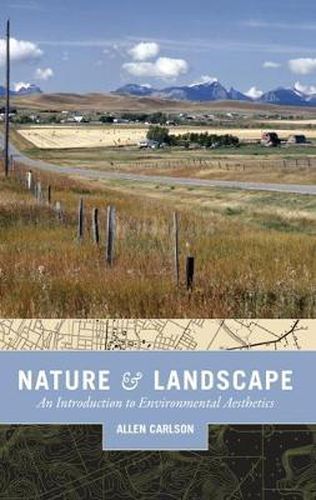Readings Newsletter
Become a Readings Member to make your shopping experience even easier.
Sign in or sign up for free!
You’re not far away from qualifying for FREE standard shipping within Australia
You’ve qualified for FREE standard shipping within Australia
The cart is loading…






The roots of environmental aesthetics reach back to the ideas of eighteenth-century thinkers who found nature an ideal source of aesthetic experience. Today, having blossomed into a significant subfield of aesthetics, environmental aesthetics studies and encourages the appreciation of not just natural environments but also human-made and human-modified landscapes. Nature and Landscape is an important introduction to this rapidly growing area of aesthetic understanding and appreciation. Allen Carlson begins by tracing the development of the field’s historical background, and then surveys contemporary positions on the aesthetics of nature, such as scientific cognitivism, which holds that certain kinds of scientific knowledge are necessary for a full appreciation of natural environments. Carlson next turns to environments that have been created or changed by humans and the dilemmas that are posed by the appreciation of such landscapes. He examines how to aesthetically appreciate a variety of urban and rural landscapes and concludes with a discussion of whether there is, in general, a correct way to aesthetically experience the environment.
$9.00 standard shipping within Australia
FREE standard shipping within Australia for orders over $100.00
Express & International shipping calculated at checkout
Stock availability can be subject to change without notice. We recommend calling the shop or contacting our online team to check availability of low stock items. Please see our Shopping Online page for more details.
The roots of environmental aesthetics reach back to the ideas of eighteenth-century thinkers who found nature an ideal source of aesthetic experience. Today, having blossomed into a significant subfield of aesthetics, environmental aesthetics studies and encourages the appreciation of not just natural environments but also human-made and human-modified landscapes. Nature and Landscape is an important introduction to this rapidly growing area of aesthetic understanding and appreciation. Allen Carlson begins by tracing the development of the field’s historical background, and then surveys contemporary positions on the aesthetics of nature, such as scientific cognitivism, which holds that certain kinds of scientific knowledge are necessary for a full appreciation of natural environments. Carlson next turns to environments that have been created or changed by humans and the dilemmas that are posed by the appreciation of such landscapes. He examines how to aesthetically appreciate a variety of urban and rural landscapes and concludes with a discussion of whether there is, in general, a correct way to aesthetically experience the environment.